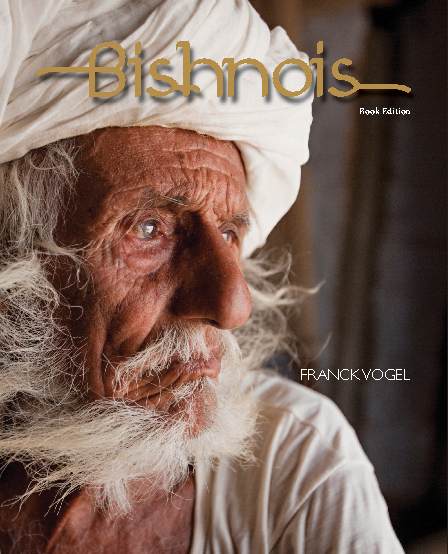
> Portfolio > The Bishnois
Ecologists Since the 15th Century
The Bishnoi community has made wildlife conservation and environmental protection their life’s work.
Considering animals and trees like members of their family – in particular, the Blackbuck antelope, which they consider like their children - the Bishnoi community of Rajasthan have made a life of protecting trees and wildlife for more than 500 years. In a world where environmental issues are ever more pressing, the age-old Bishnoi traditions can certainly teach us something.
Often called the “world’s first environmentalists”, they follow 29 principles laid out in 1485 by their guru Jambheshwar, when he founded the Bishnoi community after a severe drought. The name is derived from Bish (20) and Noi (9). Several of the 29 life rules are wholly focused on environmental protection and compassion for living beings. Every year, each family plants new trees, uses only dry wood for its needs, creates a water tank to collect rainwater, and devotes a part of its harvest to their “children” (gazelle, peacock, pigeon,…) in order to maintain balance in the desert. Whereas Bishnoi women are known to breast-feed motherless fawns, almost every year a man dies while vehemently chasing a poacher or defending a deer. As a result of this fierce commitment to nature & animals, not only trees are flourishing, but also the blackbuck antelope – fewer and fewer in number - graze serenely in the Thar Desert, known as one of the most densely populated and devastatingly arid in the world.
This little community – less than a million – briefly received Indian media attention in 1998 when Bollywood superstar, Salman Khan, killed two blackbucks near Khejarli, their most holy sanctuary - where 363 Bishnois gave their lives to save trees from the Maharaja’s soldiers’ axes in 1730. The actor was chased and arrested by Bishnois and handed over to Indian police. After several corruption attempts and appeals, he was sentenced to 5 years in jail by the court in 2007, yet somehow this sentence has never been enforced.
Long before the Green Movement in the West, the Bishnois were there in the desert; living in harmony with nature, ready to give their lives to protect it. As Amrita Devi stated, when first to offer her head to Maharaja’s soldiers: « Sar santey rookh rahe to bhi sasto jaan », “A chopped head is cheaper then a felled tree”.

Bishnoi Book available on blurb.com
BONUS
- Trailer Bishnois documentary film
- Bishnois film DVD on amazon
- Exhibition in Parisian Metro
- Exhibition skyscraper in Kazakhstan
-
Interview at Photokina by HP